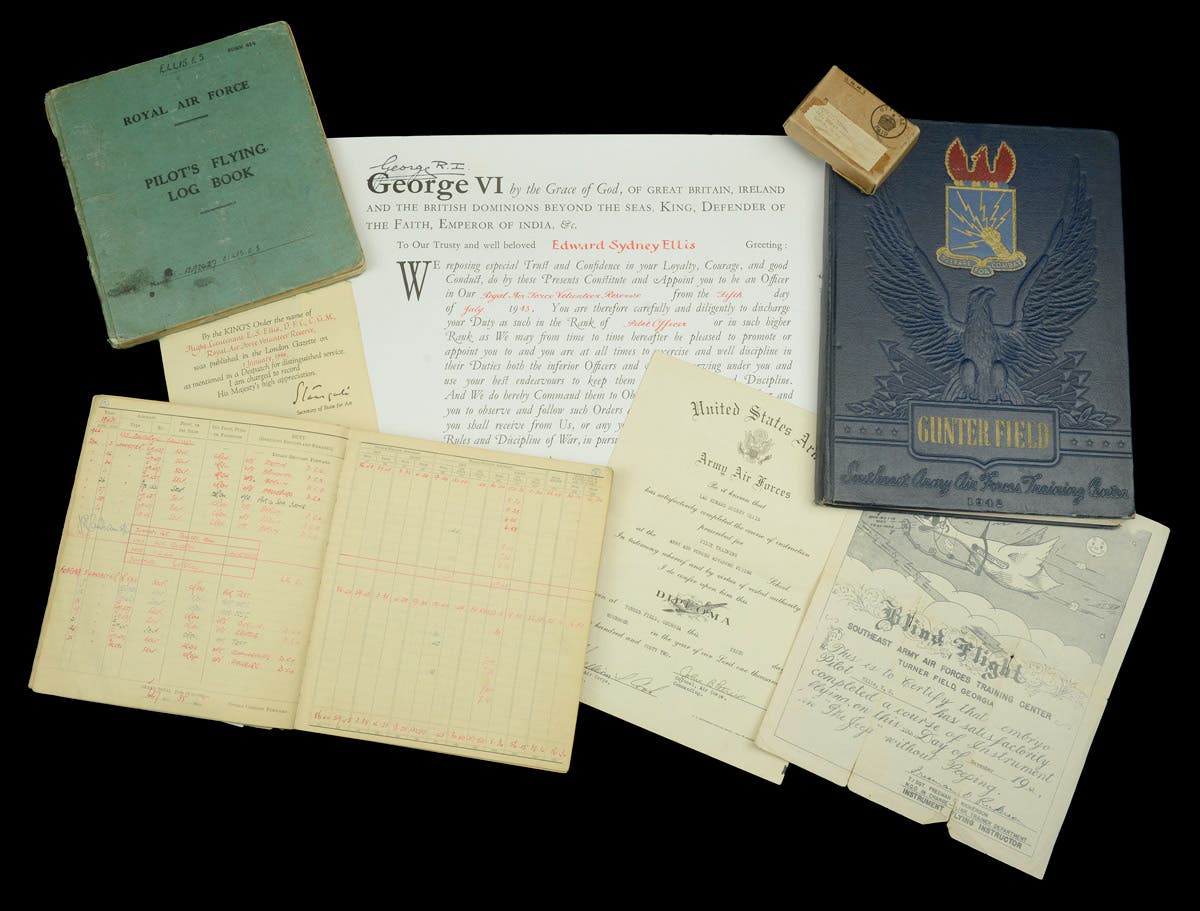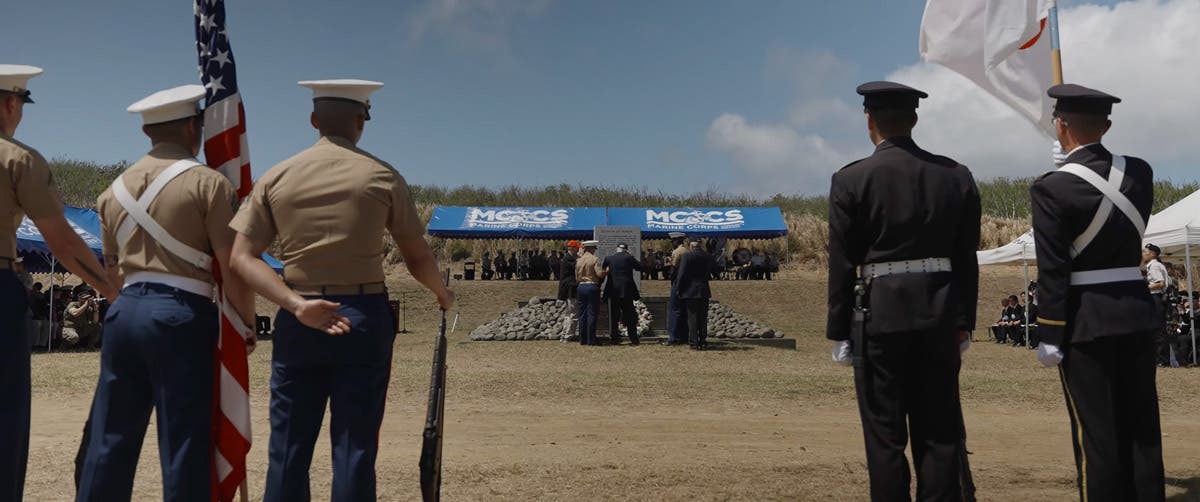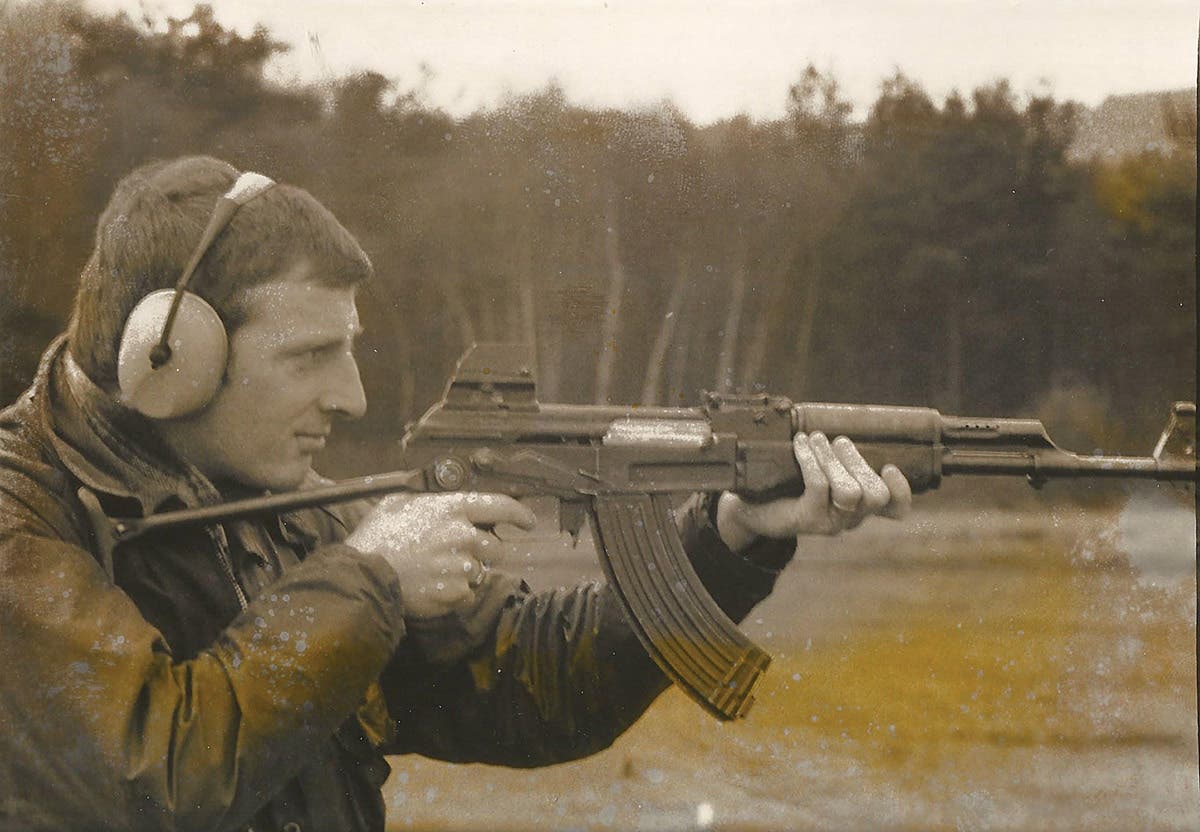Lights, Camera, Action! Militaria in the TV Spotlight
by Peter Suciu When we think of “military collectibles shows,” most think of SOS, the MAX or even just the local show with a couple of dozen tables, often piled…
by Peter Suciu
When we think of “military collectibles shows,” most think of SOS, the MAX or even just the local show with a couple of dozen tables, often piled high with uniforms, helmets and medals. But now there is a new trend that puts “militaria shows” in a different spotlight – the spotlight of reality TV.
Love it or hate it, reality television is big business. People can’t get enough of watching real housewives argue, do-it-yourself types fix up an old house and, of course, tanned youth showing their libidos have no bounds. A big trend in reality TV has been to feature those who have realized that one man’s trash is another’s treasure. Whether it is digging through storage lockers, seeing pawn brokers in action, or making the auction circuit, this latest wave of shows has put the items in the forefront.
So, it is no surprise that this has in turn spawned the latest spin off of reality TV, one focused on military collectibles. In fact, there are several shows vying to do for militaria what Antiques Roadshow on PBS did for vintage furniture and bric-a-brac.
The Rock Island Auction Company, which has been one of the most respected firearms auction companies for decades, has been among the first to make it the big time and prime time with its Ready, Aim, Sold, which follows founder Pat Hogan and son Kevin, as they seek out new items for the upcoming auctions. And while as with many reality TV shows where the viewers are treated to adventures and mishaps along the way, the real stars of the show are truly the spotlight-deserving firearms.
“This show is really about the guns,” says Kevin Hogan, who tells Military Trader that he grew up knowing this was his calling. “It is said I’m the ‘heir apparent,’ but I grew up doing it and I’m in the position to someday take the reins.”
Hogan says that he isn’t just being handed the keys to the business, and while he worked part time with his father since he was 5 years old, to get the full-time job required that he go to college and get a degree. Now that Hogan has completed that, he’s making the business his true passion – something he sees was his destiny. What he never expected was to do the business on TV.
“I never grew up thinking I was going to be on TV,” adds Hogan, “and it has been a learning curve being in front of the camera. But the production guys have been very helpful and that’s made it a lot of fun.”
Hogan also says that he thinks the show will not only make the rare guns the real stars, but that it could show the passion of the collectors, and more importantly the value of the collectibles.
“Absolutely, that is the premise of the show,” says Hogan. “There are plenty of other shows about guns, but we want to show the viewer that gun owners and especially gun collectors are very passionate and respect the history. We want to show gun collecting in the most positive light possible. The show has to be about the passion for the guns and the investment opportunities.”
Bob Chatt of Vintage Productions, just wrapped up the first season of Combat Cash for the Discovery Channel. “I truly believe shows like ours, as well as Pawn Stars, American Pickers and the rest have taught people not to throw away items,” Chatt, who previously appeared on an episode of Spike TV’s Auction Hunters as a military appraiser, tells Military Trader. “I know, as collectors, we can’t fathom throwing items away, but ‘regular people’ don’t think twice about cleaning out a family member’s home, attic or garage.”
Chatt says that he sees that this new type of show about militaria helps teach the viewer that there are collectors out there who appreciate and value historical items. He adds that this has likely already saved a lot of items from going to the local dump.
The shows could also open up a new world to those who aren’t collectors… yet. This is how Alexander Cranmer of International Military Antiques sees it. Along with his father Christian Cranmer, who founded the catalog company that has since grown to a major Internet site and now sells its wares on eBay as well as Amazon.com, Alexander Cranmer says that he believes this shows will spur interest.
“There is no question that shows like these are beneficial not just to our business but to the collectible hobby as a whole,” says Cranmer. “There are still a lot of peoplewho don’t even know you can buy these items at all. And our TV show will let them know they can, and in many cases do so from the comfort of their home.”
At press time, Cranmer and the folks at International Military Collectibles (IMA-USA) were working on show tentatively titled Battle Collectors for the National Geographic Channel and set to air in the fall of 2012, and while one of the talking heads on camera, Cranmer says that again the real stars are the items. But he adds that the show will likely help how collectors of those items are viewed.
“I think these shows will first bring people into collecting, but,” Cranmer tells Military Trader, “these shows will actually legitimize the collecting hobby. Look, we get a bad rap, and we’re portrayed as outside the norm because we buy old military items. These shows are going to make people (the viewers) realize that there is true value in the items and in many cases, items that have a better return than other investments.”
One question that remains for these shows is whether their success could actually hinder future operations – and while the shows may be a lot of work, to the point of being a “second job” for these dealers, the first job remains being a dealer.
“The Internet has already made the ‘world’ smaller,” says Chatt, who is no stranger to flying to Asia in search of items that he can flip as a dealer. “But also the Internet has opened up totally new areas for collectors and collectibles. Where it used to be just military guys looking for military items, you now have the ‘picker’ who is out searching every day and turning up new items.”
Thus the shows in turn could help turn up items. This is something that Hogan says happened immediately after the first episode of Ready, Aim, Sold aired in November of 2010.
“We didn’t know how the show was going to do, but it seemed to be a huge success with minimal promotion,” says Hogan. “We have had so many people calling in since the show aired, and the night it aired, our website traffic went up over 600 percent. It was a great hour-long commercial for us.”
Of course, as these shows hit the air waves – or at least go out over cable – they could shrink the size of the world, and there is no denying that caches of the “good stuff” are going to dry up. This, in turn, could drive up prices as the viewers begin to get savvier noting that dealers “buy low” and “sell high.” This, in turn, could make it that much harder for the shows to find new stuff?
“That’s nothing new,” says Rob Linhani of Digital Ranch Productions, who is currently working with Bob Chatt on the upcoming Combat Cash. Linhani, who was a producer for Modern Marvels and Mail Call on History, adds, “This has been happening since the first Trojan War surplus dealer advertised the sale of Achilles’ ‘original bronze spear.’”
If the prices do go up, or items just dry up, some shows will just cast a wider net. “It is ‘exotic’ if you can’t find the stuff here,” says Cranmer, who along with his father have already built the business on jet-setting around the world in search of lost caches of British rifles, discovering stockpiles of old cannons and generally just getting anything they can find. “But the stashes of old stuff from World War I and World War II are drying up.”
He adds that there are lots of “known” or at least suspected items, but getting there would be worthy of an adventure movie – not exactly reality TV. “There is stuff we know about in Eastern Europe and even Central Asia, but some of the places are just not safe for us to travel to, and that stuff is unobtainable for a host of reasons.”
While it would, no doubt, make for very good TV to see Cranmer and his father dash through jungles like a video game character, or bribe custom officials as Nicholas Cage did in the movie Lord of War, the truth is that reality TV isn’t like that. However, Battle Collectors does have the promise to offer more of a globe-trekking Indiana Jones vibe rather than just a couple of guys hitting the road in a van in search of more so-called “rusty gold,” or sitting behind a pawn shop counter waiting for the items to come to them.
One insider who asked not to be named even suggested many of the so-called “rare items” that walk into shows such as Pawn Stars may not be what they appear. He alleges in at least one case the seller and expert valuing an item were working together, and that this was nothing more of a staged event.
This is in part to be expected, as TV crews are expensive and filming a show is disruptive to the normal operations. Just having the camera rolling while waiting for someone to come in and have something truly outstanding to sell could result in a TV show going over budget rather quickly, and in most cases, won’t make for very interesting TV. Add in the fact that there have been cases where those in front of the camera have felt pressure to prove they speak with an expert voice and you suddenly get a situation where lines are crossed.
The very worst example of this type of fakery happened long before this current trend, and it didn’t require the excesses that cable typically allows either. In 1996 the granddaddy of trash or treasure TV shows was hit with one of the biggest militaria scandals when on the first season of the PBS version of the British import Antiques Roadshow appraiser George Juno declared that a Civil War cavalry saber was worth $35,000 – much to the delight of the owner who told colorful stories and of how he even played with this astonishing valuable item.
It made for great TV at the time, and it made for an even greater scandal, because it turned out the owner of the sword, Stephen Sadtler was a friend of co-appraiser Russ Pritchard II.
While on camera Sadtler had exclaimed “I cut watermelon with that sword as a kid,” behind the scenes it turned out the entire exchange was in fact staged to help the appraisers gain notoriety. PBS responded by removing Juno and Pritchard from all episodes when those were rebroadcast. Likewise, WGBH-TV, which produces Antiques Roadshow in the United States, also pulled another segment, in which another expert had appraised a 17th century Milanese parade helmet for $250,000. Executives at the station were alerted that the helmet did not in fact belong to the women who brought it in – and while the accusation was never actually confirmed, the segment was pulled due to the past embarrassment.
With concerns of competition from too many shows, worries over staged events and of course the fact that new items that are worth actually talking about must be uncovered each and every week, is it any wonder whether the show – or shows in this case – will go on?
“In my opinion, the day and age of the American Pickers specialty show dialed to a specific genre is over,” says Craig Gottlieb of Craig Gottlieb Military Collectors. “The networks are tired of that same format.”
Gottlieb offers this advice not only as a dealer who has appeared countless times on TV when selling especially remarkable items, or recently on Auction Hunters buying several finds, but also someone currently working with a production partner to launch, yes, his own reality TV. Despite his take on the competition, or perhaps as a response, Gottlieb says the format he’s working with is different.
“I don’t have to make anything up, and everything that happens to me is real,” Gottlieb tells Military Trader, adding that while he has made a business selling high-end collectibles of the Third Reich, these items might not be so embraced on mainstream TV. “I don’t know if a show exclusively focused on Third Reich or Nazi items would even sell. It would be controversial.”
What Gottlieb, Hogan, Cranmer, Chatt and others who suddenly find themselves in this space do have in common is that they are essentially experts in their respective fields and that’s what these shows have going for them. While the items may very well be the star attraction, an item is just an old uniform, rusty helmet or knife until the likes of these voices can help paint that picture. And whilst all wish the items could tell their stories, the truth is that they can’t.
Hogan also adds that although he and his father get the camera time, all of these shows are still very much dependent on the rest of the business to put it together. “Even doing this for years, I don’t know everything about every gun we see. But we have a really dedicated staff to help us. And while our competition might say they have the best firearms expert, I can safely say I know we do. People already see our catalog as a reference for what the market will bring, and now we’ll have the show, too.”
So while for now those rusty helmets and vintage firearms can never tell the stories – and as the would-be watermelon-cutting sword story can attest, the current owners can’t always be believed – the insight from those in front of the camera can help connect those items to the past. With this new wave of militaria-focused shows getting the green light, militaria might just be ready for prime time.
WHERE TO WATCH -- Cancelled.
Peter Suciu is a freelance journalist and when he isn't writing about militaria you can find him covering topics such as cybersecurity, social media and streaming TV services for Forbes, TechNewsWorld and ClearanceJobs. He is the author of several books on military hats and helmets including the 2019 title, A Gallery of Military Headdress. Email him and he'd happily sell you a copy!





